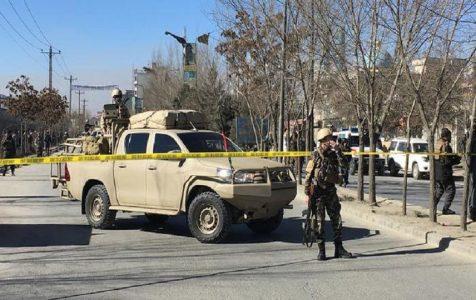
Why ISIS terrorists are targeting Shiites in Afghanistan?
Islamic State has once again chosen to target Shiites in its latest Kabul attack that killed at least 26 people. Experts say the group is trying to create sectarian rifts in the country and use them to its advantage.
Afghan officials first acknowledged Islamic State (IS) as a security threat as early as 2015. IS, officials claimed at the time, was confined only to the eastern Nangarhar province, where it controlled most parts of the Achin district.
The government subsequently launched military operations in the area and declared victory against the militant group in March 2016. In August of the same year, Washington and Kabul confirmed that Hafiz Saeed Khan, IS’s regional chief for the group’s so-called Khurasan branch, which includes Afghanistan, Pakistan and parts of Central Asian countries, had been killed in a US drone strike.
The Pentagon confirmed in July 2017 that Abu Sayed, head of the IS terror group in Afghanistan, had been killed in a US airstrike in Kunar province. US Defense Secretary Jim Mattis said Sayed’s death was a significant blow to IS.
Clashes with the Taliban, a much stronger and older Islamist group in Afghanistan, also hindered IS’s progress in the war-torn country. Due to these reasons, Afghan officials were hopeful that IS would not be able to establish itself in their country.
But things haven’t turned out exactly the way the Afghan government had hoped for. IS fighters continue to launch deadly attacks in the country.
Islamic State claimed responsibility for Wednesday’s attack that targeted a Shiite shrine in Kabul during celebrations of the Persian new year, known in Afghanistan as the Nauruz.. The suicide attack killed 26 and wounded 18 others, according to news agencies.
It was not the first time that Islamic State, a largely Sunni militant group, targeted Afghan Shiites. Afghanistan’s Shiite minority has witnessed several attacks in 2017. Hundreds of people have been killed in attacks on their mosques and religious ceremonies. Among them were three attacks on Shiite mosques in Kabul in August, September and October.
Kabul-based security analyst Wahid Muzhdah believes the jihadist group is trying to create sectarian rifts in Afghanistan.
“IS is facing a huge challenge from the Taliban, who are a potent militant force in the country,” Muzhdah told DW.
“To establish itself in Afghanistan, IS needs support from local extremist Sunni groups. IS is targeting Shiites to distinguish itself from the Taliban,” Muzhdah added.
Afghan security experts fear IS could divide the country along sectarian lines. Muzhdah, however, believes it won’t be an easy task for the jihadist group.
“After each IS attack on Afghan Shiites, religious leaders from all Islamic sects have come forward in support of the victims,” he said. “But if the government doesn’t do anything to stop such attacks, the sectarian split could deepen,” Muzhdah warned.
The IS focus on Afghanistan was quite inevitable after the group suffered heavy losses in Syria and Iraq in 2017. After IS’s defeat in Iraq, experts had warned that a large number of its fighters could move into Afghanistan and Pakistan from the Middle East.
“As a result of setbacks in Iraq and Syria, we will most likely experience a major influx of IS fighters into Afghanistan and Pakistan looking for new areas of operations,” Siegfried O. Wolf, a South Asia expert at the University of Heidelberg, told DW.
IS presence in Afghanistan is no longer confined to Nangarhar province. According to new reports, the group has increased activities in other parts of Afghanistan as well, including the relatively safe northern regions.
IS or IS-linked attacks have also spiked in Pakistan. Experts say the group could get support from Pakistan-based militant outfits that are against Shiites and the Iranian influence in their country.
Afghan authorities have repeatedly accused Islamabad of supporting the Taliban and other militant groups and sending them into Afghanistan to destabilize the government. Experts say that although Pakistan does not consider IS an ally or a group which can fulfill its strategic interests in the region, things could change in the future as the hardline Saudi Wahhabi ideology could be a binding factor.
Source: DW





